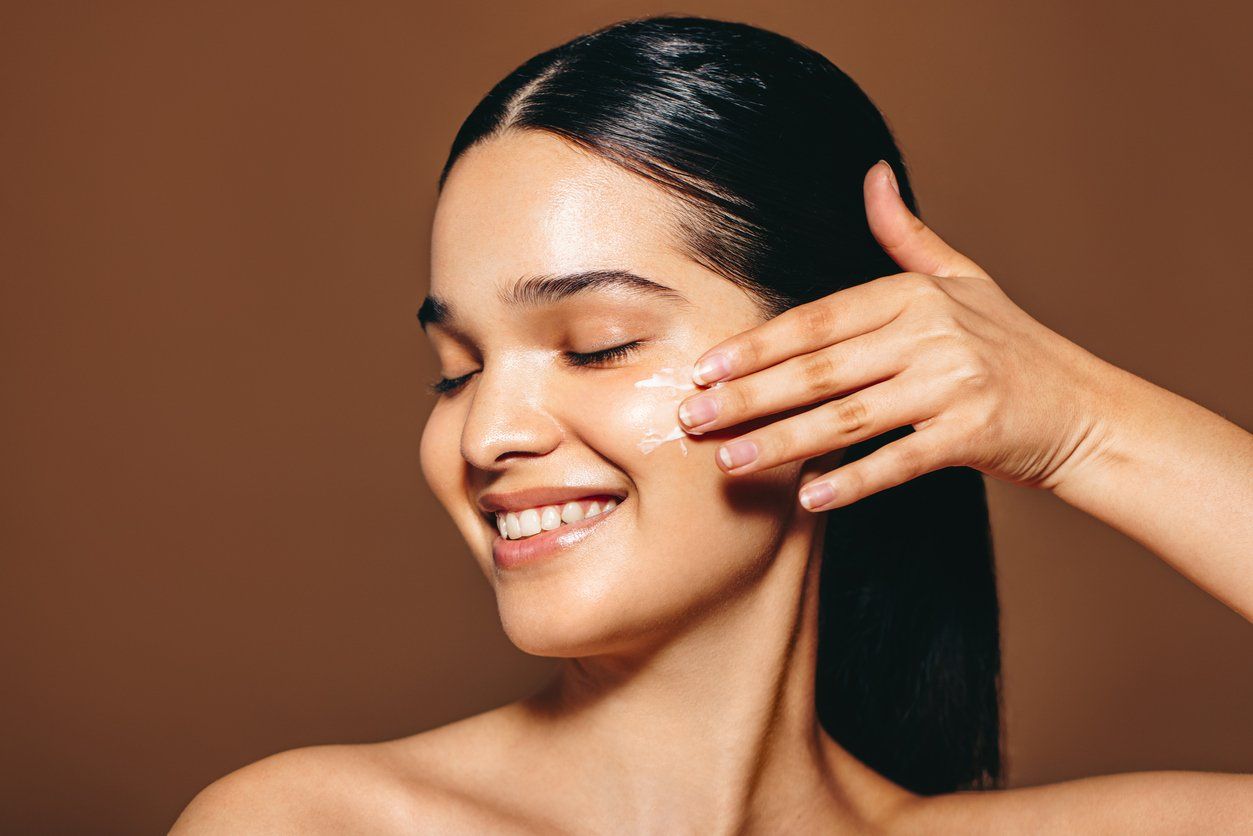By guest blogger: Eucerin Skin First Council Member/Supermodel Veronica Webb
Every year back-to-school time is a big deal in my house. Just like when I was young, getting my daughters' fall clothes ready and the school supply list checked off is a significant part of saying good-bye to summer. Along with all of the things my kids will learn in school this year, I try to teach them a tip or two about taking care of their skin, in hopes of keeping them healthy and happy throughout the entire school year.
I started paying closer attention to my skin during my first pregnancy. It was the first time I noticed big changes in its moisture and texture since my own childhood. I began to pay attention to ways to keep my skin healthy, and I've carried these skin care regimens over into the ways I care for my kids' skin.
Because my mother was a nurse, she always used very gentle soaps when we were growing up, and I do the same for my kids. I make sure they bathe with soothing, non-drying cleansers, and I switch their lotion to a more intensive moisturizer in the colder weather. I also prefer for them to wash with soft, disposable cloths instead of washcloths so bacteria won't develop and get rubbed onto their skin.
While I get them ready, I remind them that the most vulnerable parts of the skin like their feet and hands need the most attention. If you allow your feet or elbows to get dry and cracked in the colder weather, your whole body could be compromised. By using a moisturizer on these vulnerable parts, I can protect them against dirt, pollutants and other harsh elements, even when they're not in my sight.
Like most kids, mine spent a huge part of the summer outside. All of the outdoor fun and fresh air was great, but the potential exposure to sun damage wasn't. In fall and winter, water, snow or ice can reflect the sun and increase their exposure to UVA and UVB rays. From the start of the season, I make sure they always wear long sleeves, pants or tights when they're outside, and I pack away a small bottle of face lotion with SPF 30 for their lockers or backpacks, reminding them to reapply it when they run out for recess.
Finally, I teach my kids about how healthy skin begins with what they put in their bodies. As my daughters grow, they need to eat lots of foods that are rich in antioxidants. Luckily, the farmers' market is full of seasonal vegetables like carrots, spinach and sweet potatoes that are some of the best things you can eat for your skin. They may not always love to eat their veggies, but if I pack their lunch boxes with snacks like walnuts and almonds, dried berries and low-fat yogurt, I know they're getting a large part of the nutrients they need.
Hopefully, these simple everyday things will prepare my kids—and yours—for a lifetime of healthy, beautiful skin.
Veronica Webb is a broadcast journalist and international fashion icon. She has worked for many of the most prestigious fashion magazines—including Elle, Vogue, Essence and the New York Times—as both a model and a writer. Her greatest roles to date are as a mother to her two daughters and as a spokesperson for AIDS organizations and Eucerin's Skin First Council.
HealthyWomen content is for informational purposes only. Please consult your healthcare provider for medical advice, diagnosis or treatment.


Bellamy Young Is Putting the Spotlight on Hepatic Encephalopathy
The award-winning actress talks about the brain disorder that affected her father and how she’s using her platform to help give caregivers a voice
The Latest Fitness TikTok Trends: Heart or Hype?
Do vibration plates work? Should you try a weighted vest or a mini trampoline workout? Our expert weighs in on what you need to know about the latest fitness trends taking over social media.
iStock.com/T-studios2
WomenTalk: The Link Between Diabetes and Your Heart
In this episode of WomenTalk, we’ll learn all about the link between heart disease, stroke and diabetes.
Bladder Cancer and Black Women
Bladder cancer is not just a white man’s disease — and when Black women get bladder cancer, they often have worse outcomes
iStock.com/FatCamera
El cáncer de vejiga y las mujeres de raza negra
Cuando las mujeres de raza negra desarrollan cáncer de vejiga, sus desenlaces clínicos frecuentemente son peores que los de sus contrapartes de raza blanca. Entérate de por qué ocurre eso.
iStock.com/FatCamera
